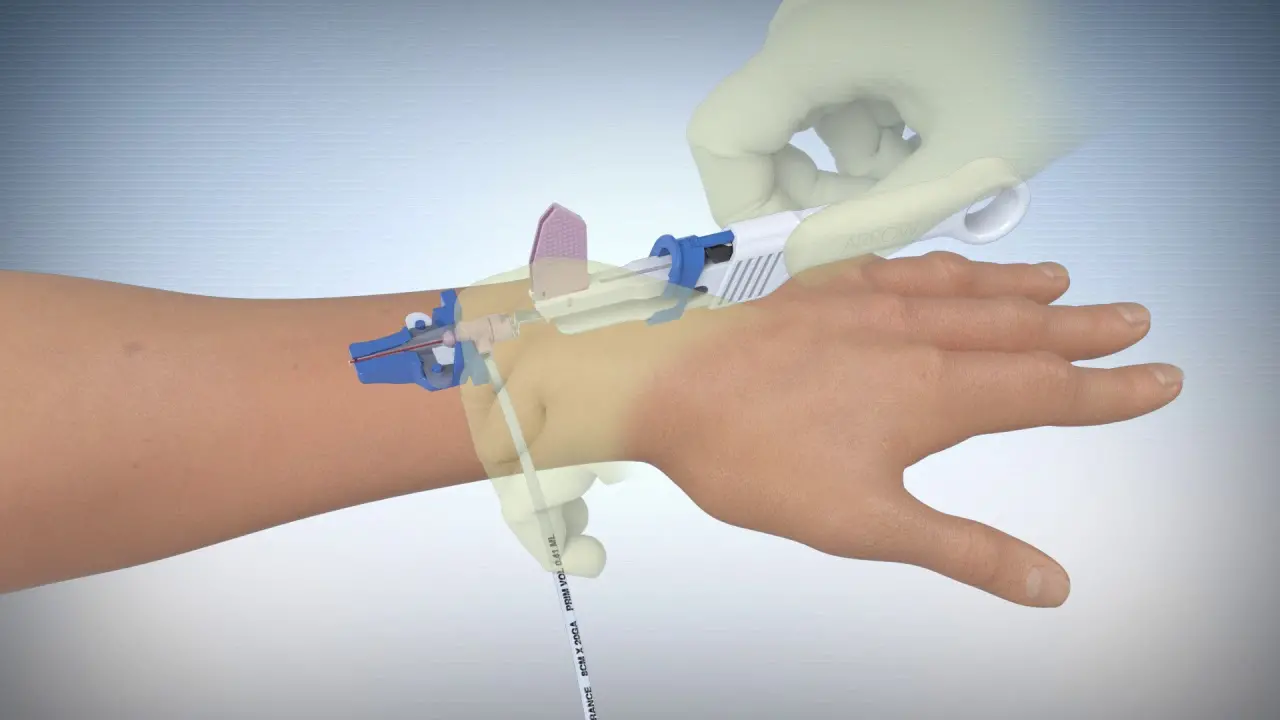- Home
- Medical news & Guidelines
- Anesthesiology
- Cardiology and CTVS
- Critical Care
- Dentistry
- Dermatology
- Diabetes and Endocrinology
- ENT
- Gastroenterology
- Medicine
- Nephrology
- Neurology
- Obstretics-Gynaecology
- Oncology
- Ophthalmology
- Orthopaedics
- Pediatrics-Neonatology
- Psychiatry
- Pulmonology
- Radiology
- Surgery
- Urology
- Laboratory Medicine
- Diet
- Nursing
- Paramedical
- Physiotherapy
- Health news
- Fact Check
- Bone Health Fact Check
- Brain Health Fact Check
- Cancer Related Fact Check
- Child Care Fact Check
- Dental and oral health fact check
- Diabetes and metabolic health fact check
- Diet and Nutrition Fact Check
- Eye and ENT Care Fact Check
- Fitness fact check
- Gut health fact check
- Heart health fact check
- Kidney health fact check
- Medical education fact check
- Men's health fact check
- Respiratory fact check
- Skin and hair care fact check
- Vaccine and Immunization fact check
- Women's health fact check
- AYUSH
- State News
- Andaman and Nicobar Islands
- Andhra Pradesh
- Arunachal Pradesh
- Assam
- Bihar
- Chandigarh
- Chattisgarh
- Dadra and Nagar Haveli
- Daman and Diu
- Delhi
- Goa
- Gujarat
- Haryana
- Himachal Pradesh
- Jammu & Kashmir
- Jharkhand
- Karnataka
- Kerala
- Ladakh
- Lakshadweep
- Madhya Pradesh
- Maharashtra
- Manipur
- Meghalaya
- Mizoram
- Nagaland
- Odisha
- Puducherry
- Punjab
- Rajasthan
- Sikkim
- Tamil Nadu
- Telangana
- Tripura
- Uttar Pradesh
- Uttrakhand
- West Bengal
- Medical Education
- Industry
Comparative Safety of Midline Catheters and PICCs in Long-term Intravenous Therapy

In a recent groundbreaking trial conducted at a Danish academic tertiary care center, researchers have shed light on the safety and efficacy of midline catheters (MCs) compared to peripherally inserted central catheters (PICCs) in adult patients requiring intravenous therapy for a duration of 5 to 28 days. The trial found that there was a low incidence of Catheter-related bloodstream infections with no significant difference between MCs and PICCs in patients receiving medium- to long-term intravenous therapy. However, the use of MCs resulted in a higher incidence of overall catheter-related complications compared with PICCs.
The trial results were published in the journal JAMA Network Open.
Midline catheters (MCs) have become a common choice in medical settings, yet a comprehensive assessment of their safety and efficacy relative to peripherally inserted central catheters (PICCs) has been lacking. This critical gap in knowledge has prompted researchers to delve into a thorough examination of the two catheter types to provide clearer insights into their comparative performance. Hence, researchers carried out a parallel, 2-group, open-label, randomized clinical trial (RCT) aimed to address the existing gap in knowledge regarding the two widely used catheter types. The study, spanning from October 2018 to February 2022, enrolled a total of 304 patients with a mean age of 64.6 years, of whom 42.8% were female. Each participant was randomly assigned to either the MC group or the PICC control group in a 1:1 ratio.
The primary outcome under scrutiny was the occurrence of catheter-related bloodstream infection (CRBSI), a critical factor in evaluating the safety of these catheter types. Secondary outcomes encompassed symptomatic catheter-related thrombosis and catheter failure, which included issues such as mechanical causes, phlebitis, infiltration, pain associated with drug or fluid administration, and leakage from the puncture site.
Findings:
- Strikingly, the incidence of CRBSI was remarkably low, with no reported cases in the MC group and only one case in the PICC control group (P > .99).
- This finding suggests that both MCs and PICCs exhibit comparable efficacy in preventing CRBSI in the specified patient population.
- However, delving into secondary outcomes, the study revealed a noteworthy distinction.
- The MC group exhibited a higher overall catheter-related complication rate (13.2%) compared to the PICC control group (7.2%).
- Further analysis, using the incidence rate ratio (IRR), demonstrated a statistically significant IRR of 2.37 (95% CI, 1.12-5.02; P = .02) in favor of the PICC group.
- In a post hoc analysis stratified by catheter dwell time, the researchers explored the impact of catheter use for less than 16 days.
- Interestingly, this subset analysis did not reveal a significant difference in complication rates between the two groups (IRR, 1.16; 95% CI, 0.50-2.68; P = .73).
The study's conclusion emphasizes the low incidence of CRBSI with both catheter types but highlights the higher incidence of catheter-related complications with MCs. Researchers recommend a nuanced approach in the decision-making process, considering individual patient characteristics and the expected duration of intravenous therapy.
Further reading: Thomsen SL, Boa R, Vinter-Jensen L, Rasmussen BS. Safety and Efficacy of Midline vs Peripherally Inserted Central Catheters Among Adults Receiving IV Therapy: A Randomized Clinical Trial. JAMA Netw Open. 2024;7(2):e2355716. doi:10.1001/jamanetworkopen.2023.55716
BDS, MDS
Dr.Niharika Harsha B (BDS,MDS) completed her BDS from Govt Dental College, Hyderabad and MDS from Dr.NTR University of health sciences(Now Kaloji Rao University). She has 4 years of private dental practice and worked for 2 years as Consultant Oral Radiologist at a Dental Imaging Centre in Hyderabad. She worked as Research Assistant and scientific writer in the development of Oral Anti cancer screening device with her seniors. She has a deep intriguing wish in writing highly engaging, captivating and informative medical content for a wider audience. She can be contacted at editorial@medicaldialogues.in.
Dr Kamal Kant Kohli-MBBS, DTCD- a chest specialist with more than 30 years of practice and a flair for writing clinical articles, Dr Kamal Kant Kohli joined Medical Dialogues as a Chief Editor of Medical News. Besides writing articles, as an editor, he proofreads and verifies all the medical content published on Medical Dialogues including those coming from journals, studies,medical conferences,guidelines etc. Email: drkohli@medicaldialogues.in. Contact no. 011-43720751


